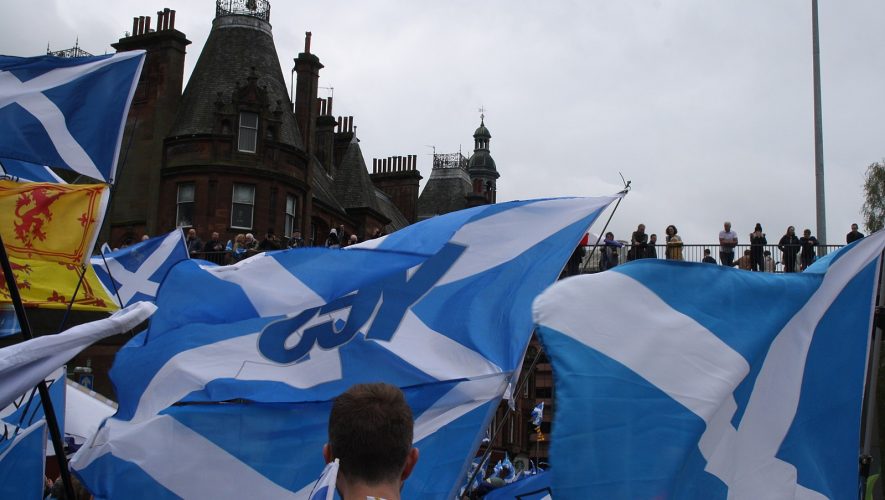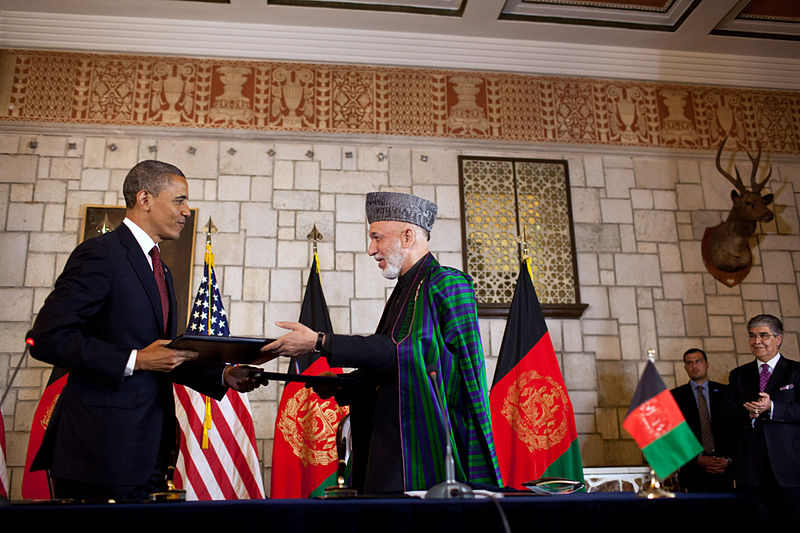On September 19, 2014, Prime Minister David Cameron and other world leaders expressed their relief and approval of Scotland’s decisive vote to remain in the United Kingdom (UK), but it would not take long for Scottish leaders and citizens to regret the results. In 2016, Cameron’s government asked the citizens of England, Wales, Scotland, and Northern Ireland if the UK should remain in the European Union (EU) or be the first country to try to leave it. After a bitter campaign, the UK voted narrowly to leave, to the chagrin of EU leaders, UK opposition leaders, and most Scottish and Northern Irish citizens.
Since the 2016 referendum, the headlines have changed wildly. While the cast of UK and EU Brexit negotiators captured the attention of many, and the tensions between Westminster and Brussels enthralled the media and public, the largest implications for the UK lie within one question: after Brexit, will there still be a United Kingdom?
Going back a few years, before the Brexit referendum and the re-election of David Cameron in 2015, the Scottish independence referendum was called a “once in a generation opportunity.” At the time, the pro-union campaigners feared Westminster would block an independent Scotland from joining the EU, forcing Scotland to become an economic pariah. This threat resulted in a 55–45 vote for Scots to vote to remain in the UK. But following the 2016 referendum, many Scots wondered why they should stay in the UK if they were being forced out of the EU anyway.
Every county in Scotland voted to remain in the EU, with 62 percent of Scots voting remain. After the Brexit referendum, Nicola Sturgeon, the leader of the Scottish National Party (SNP) and First Minister of Scotland, announced the Scottish government’s desire for a new independence referendum. Many see Brexit as the epitome of English decisions forcing Scotland into something the country did not vote for.
In Scotland, the issue of self-rule has been a point of contention since the last Parliament of Scotland adjourned in 1707, when the Acts of Union formally united the two countries under one throne. Scots were not easily subdued, with the Jacobite risings of the eighteenth century in support of the Stuart lineage also seen as a campaign to regain Scottish rights and liberty. These rebellions were crushed, and marked the end of the distinct Highlander and Scottish culture. The British government forcibly evicted inhabitants of the Scottish Highlands and western islands, dismantled the clan system, and outlawed wearing kilts, playing bagpipes, and speaking Scottish Gaelic.
But the Scottish demand for regaining their long-held independence was not as easily wiped out as the rebels on Culloden Moor, the final stand of the Jacobites. The debate of the Scottish people and Scottish issues not receiving proper representation dates back well before Brexit. Since 1853, there has been a movement for home assembly—the meeting of Scottish Parliament—or outright independence. For a long time, UK leaders would not entertain this idea, believing Scotland should be ruled by Westminster without a separate, devolved Scottish Parliament. When Tony Blair and the Labour Party won a majority in the 1997 elections, there was a promise of a referendum on devolution for the regions. With resounding “yes” votes in all regions, the Scottish, Welsh, and Northern Irish Parliaments were created. All had differing amounts of power, though Westminster retained the final say and control over legislation and has maintained “reserved powers,” including full control over foreign policy and immigration.
One of the biggest goals for current Scottish leaders, in both Holyrood (seat of Scottish Parliament) and London, is maintaining the rights and legislative control they have, demanding more if Westminster doesn’t let them separate from the rest of Great Britain. At the moment, Scotland does not control their immigration policies or certain types of taxation. Sturgeon and other Scottish nationalists are pushing for the regional parliament to gain these powers as a way to give Scotland more autonomy. Sturgeon’s government released a white paper in 2017, titled Scotland’s Place In Europe, which noted that even if Scotland did not declare full independence, Sturgeon would look into how Scotland could remain connected to the EU common market. Scotland has historically been poorer than England, with a smaller economy primarily consisting of fishing, agriculture, and trade, so concerns of Brexit detrimentally affecting Scotland’s economy are not unfounded.
In the paper’s foreword, Sturgeon asserted that “the Scottish people did not vote for Brexit, and a ‘hard Brexit’ would severely damage Scotland’s economic, social and cultural interests.” She then laid out what she considered the best option: that gaining independence from the UK and applying to join the EU would solve Scotland’s problems, due to the “Westminster Governments that Scotland doesn’t vote for, imposing policies that a majority in Scotland does not support.”
Between historical, economic, and recent political grievances, the case for Scottish independence has steadily gained support among Scots, as most voted to remain in the EU but are still being forced to leave by the more populous England. In 2014 the bid for independence was voted down 55–45, but after last December’s general election, polls say only 47 percent would support remaining in the UK if there were another independence referendum.
Brexit took its first victim when Prime Minister David Cameron stepped down, believing he could not lead the country through the Brexit process due to his support of the Remain campaign. Theresa May followed Cameron, becoming an embattled figure for a ‘soft Brexit,’ wherein the UK would remain intertwined with Europe while taking back more political autonomy. May stepped down in July 2019 following repeated rejections of her plan for Brexit by Parliament and Brussels, as it became clear she would not lead the UK out of the EU.
Boris Johnson, once a punchline of a politician as the mayor of London, advocated a ‘hard Brexit,’ a full and decisive break from the EU and its parliament. Johnson’s ability to pass a Brexit bill through Parliament after the Conservative Party’s decisive victory in the December election has only compounded Brexit-related outrage and fears of Scottish political leadership and citizens.
The Brexit bill, passed a week before the January 31 deadline, sets out a number of regulations, including how the border with Ireland will function practically, how the “divorce” payments to the EU will happen, and transition guidelines. The transition period begins February 1 and lasts until the end of 2020—the bill prohibits an extension—during which time the UK will follow EU regulations, remain in the common market, and allow the free movement of people. While the passing of this bill makes Brexit possible on January 31, there is still much for Parliament and the European Parliament to negotiate.
After three-and-a-half years of negotiations, there has been much talk of celebration on January 31, but for many it is not a day of celebration. The Scottish National Party plans to hold a massive protest at Holyrood on Brexit day. Featuring the slogan “Missing EU already,” the SNP aims to indicate the discontent of the Scottish government and people to be taken out of the EU and renew calls for another independence referendum. If Johnson is not careful, he could be the last prime minister of the United Kingdom as we know it today.



